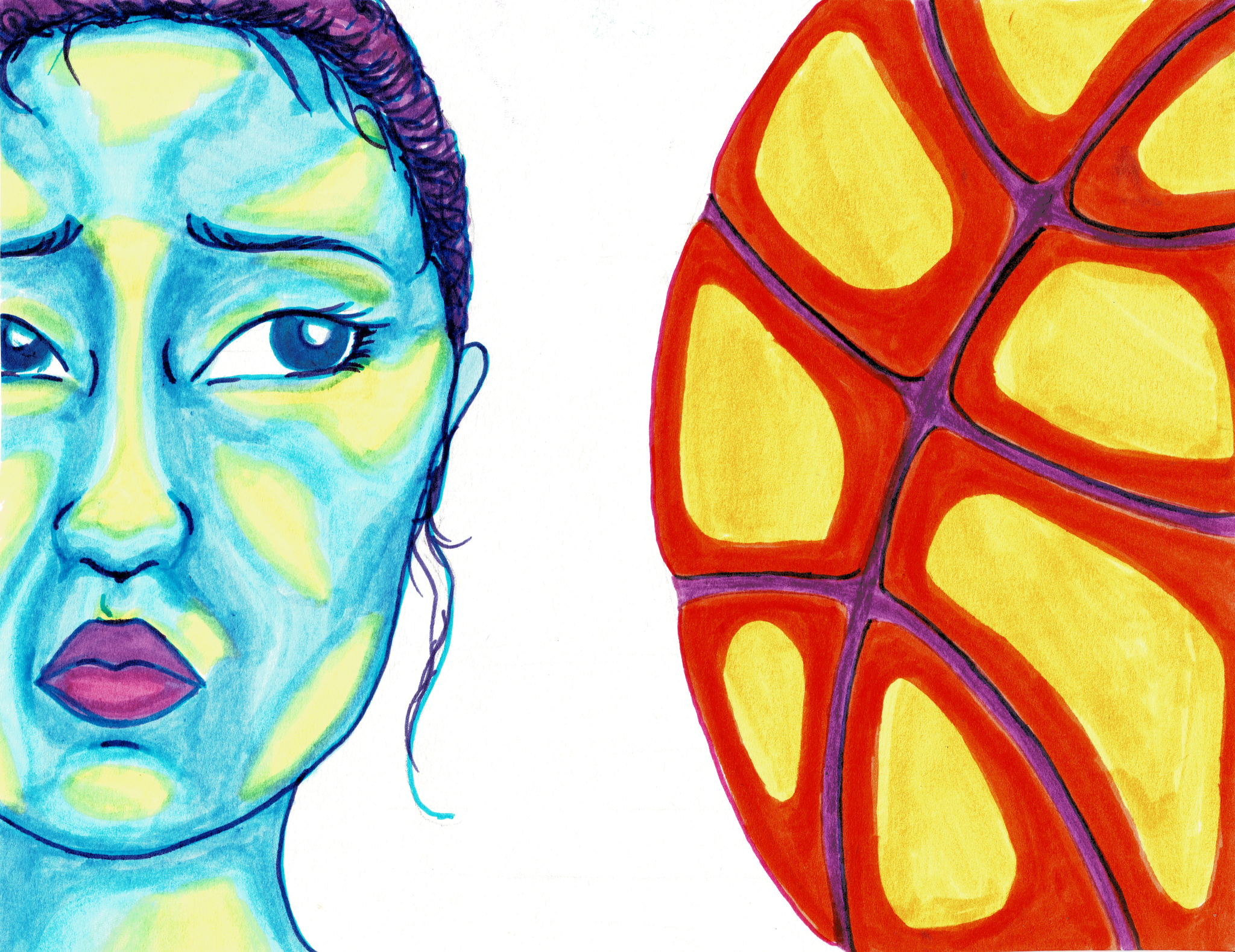A couple years ago, Samir O’Brien, a junior on the Berkeley High School varsity basketball team, went up for a layup and fell on his hand.
“I knew right away that my pinky was messed up,” O’Brien said. He missed three months of basketball, including the whole summer of travel ball, which gives players the extremely important game reps they need during the offseason to prepare for the upcoming school season.
Injuries like O’Brien’s are very common in sports. While the physical pain after an injury is one burden for athletes, what might be even harder is the mental pain of an athlete trying to work their way back to the level they were at before a devastating injury. BHS athletes and trainers say fear and hesitation built up due to trauma from injuries can get in the way of an athlete’s performance.
Elan Zakim, a BHS junior, was injured during baseball tryouts his freshman year. “I don’t remember the exact moment it happened,” Zakim said.
“I felt fine during tryouts, but as the days and weeks went on, my arm started to burn. … Eventually I found out I had torn my tricep tendon,” he said. Zakim played through the injury, but it hasn’t been an easy road for him. “My recovery has been very long and challenging, and I’m still not at 100 percent,” he said.
Athletes often have a subconscious fear of reinjury after returning that can affect the way they play the game, and make them hesitate without intending or even noticing it.
Zakim spotted some changes within his game when he returned to practice. “I’ve noticed that the arm slot (that I throw in) has changed,” said Zakim, who did not try to change the way he pitches. Zakim also said that he has not been able to throw as well as he used to, adding that, “sometimes I feel myself holding back.”
Once O’Brien returned to action, he too felt out of place. “When I came back I just felt dysfunctional, and I was really upset. I felt like I was so much worse and it just killed my confidence,” O’Brien said. “I just became more and more cautious and paranoid.”
However, he emphasized the balance of rational and irrational fear, and said that his injury also changed his conscious approach to the game. He explained that you should “enjoy yourself, but play with caution.”
Lauren Small, the BHS athletic director, deals with athletes like O’Brien and Zakim on a regular basis. She said the danger of returning unprepared can be significant. “Making sure you’re doing everything in practice and being comfortable and confident is so important before you try and play a game,” Small said. She added that when they return is the time when athletes are most in danger of getting hurt again, because they don’t realize their subconscious fear and how it tweaks their motion.
Her advice for how to deal with mental struggles after a serious injury in sports is to talk to other athletes who share similar experiences, as well as having supportive people around you. Small also suggested going to a therapist or a sports psychologist if you need more support.
O’Brien and Zakim both have moved on from their injuries and are playing for their respective teams at BHS.
“I can’t wait for the season to start,” said Zakim.





